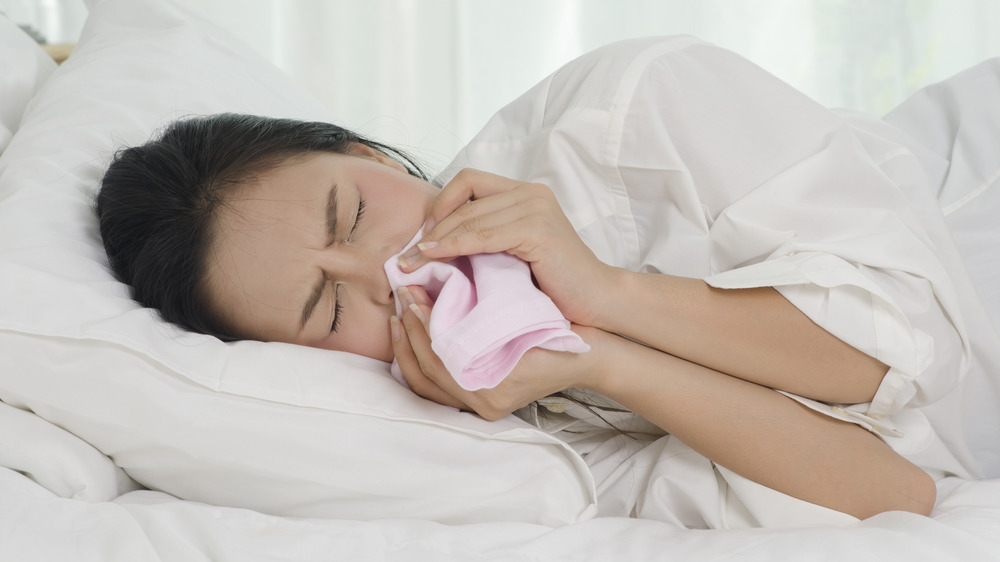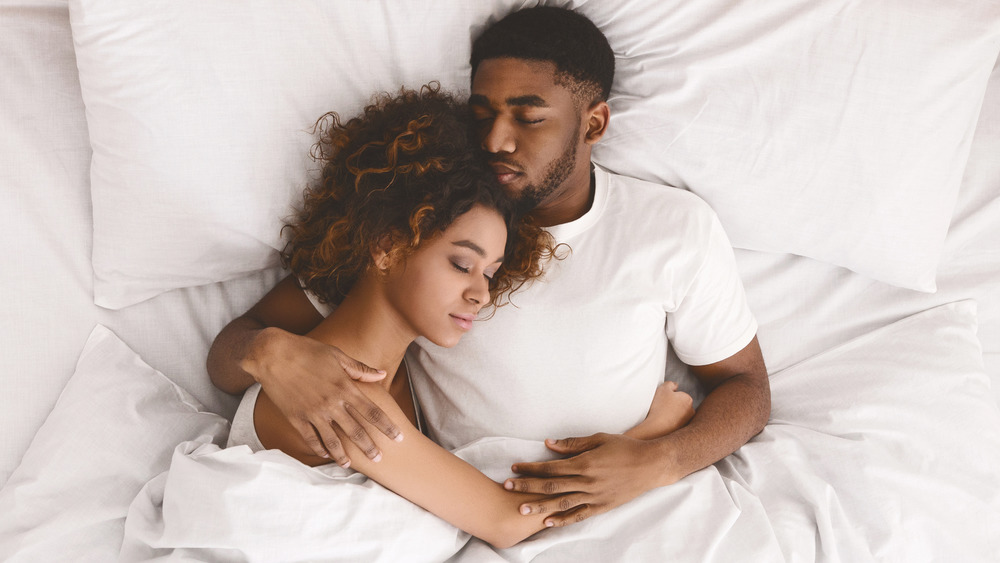What Really Happens When You Sneeze In Your Sleep
What our bodies do while we're asleep isn't always within our control. Maybe you've been told that you snore, grind your teeth, or talk in your sleep. But what about other involuntary body responses? Most of us don't feel the urge to eat, drink, or use the bathroom while we're in the midst of a deep sleep. So if we're able to hold off on those natural bodily instincts until morning, why is it that other reflexes, such as sneezing, can still occur while we're snoozing?
According to Amerisleep, humans go through different phases of sleep during the course of a night, with the deepest level being REM, or Rapid Eye Movement sleep. It's in this phase that dreaming occurs through active brain wave activity, even though our bodies remain fully asleep. In this deep state of relaxation, we also experience REM atonia. Muscle atonia can be described as a form of paralysis in which the muscles are so relaxed that we are unable to engage in physical movement (via Sleepio).
Sneezing is our body's way of riding our system of any potentially harmful or irritating particles. Any number of things can induce our body's sneezing response from bright light, to pollen, to dander, to viruses (via Healthline). When these particles stimulate our nasal senses, our nerves send a message to the brain that it's time to clear it out.
REM sleep inhibits our ability to sneeze
During REM sleep however, not only do we lose muscle control, but neurotransmitters such as histamine are also nonfunctioning. Histamine is responsible for the regulation of neurological immune system responses. "During an immune reaction, histamine is released and contributes to physical changes necessary for the immune system to fight a pathogen, including the increase in blood pressure, temperature, swelling, and bronchial constriction, " according to ScienceDirect.
Due to our body's natural rhythms that take place during REM sleep, scientists believe it is not possible for sneezing to occur at this stage of the sleep cycle. However, other phases, known as NREM or Non-Rapid Eye Movement sleep, account for the majority of time spent asleep at night — by as much as 75 percent (via Amerisleep). During NREM phases, though you are beginning to enter a state of rest, you are not yet deep enough in the process for muscle atonia to occur. Therefore, a sneeze is still possible during these stages as you are not yet fully asleep.
Though research indicates that sneezing is a bodily function that is only able to occur during levels of wakefulness, if you find yourself sneezing in the middle of the night, healthy bedtime habits such as reading, reduced screen time, or meditation may be some ways to help induce a more restful night's sleep.


